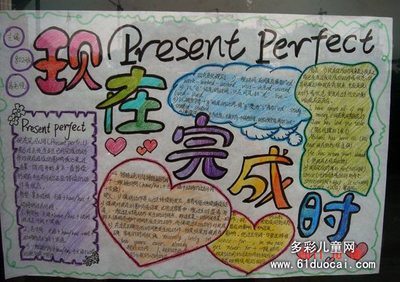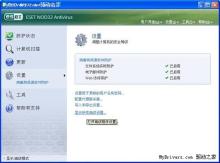怎样使用现在完成时?
1)看结果。当谈及过去发生的动作和现在有关系,即对现在造成了影响或结果时,大家就要用到我。
2)看副词。我通常不与表示确定时间的时间状语连用。通常和我在一起用的有already,just, ever, before, yet,never等。需要指出的是,already,just多用于肯定句中,而ever, never,yet多用于疑问句或否定句中。如:
I have already written a letter to my friend.
我已经给我的朋友写了一封信。
I have just borrowed an interesting book from thelibrary.
我刚刚从图书馆借了一本有趣的书。
Have you ever been to Hawaii?
你去过夏威夷吗?
I have never learnt surfing from him.
我从来没有向他学过冲浪。
Linda hasn’t finished her work yet.
Linda还没有完成工作。
3)看状语。我通常和for或since引导的状语在一起使用。(这一点我们下周见面时再聊)二、分不清have/hasbeen in, have/has been to与have/has goneto的职责
1)have/has beenin意为"已经在某地呆了一段时间",常与表示一段时间的时间状语连用。如:
I have been in Beijing for five days.
我待在北京已有五天了。
2)have/has been to意为"曾经去过某地",表示现在已经不在那里了,可与just,ever, never等连用。如:
Have you been to the Great Wall?
你去过长城吗?
have/has beento后面也可接次数,表示去过某地几次。如:
I have been to Beijing once.
我去过北京一次。
3)have/has goneto意为"到某地去了",表示到了某地或正在去某地的途中,说话时该人不在现场,一般不用第一或第二人称代词作句子的主语。如:
—Where is Miss Li?
—李老师在哪里?
—She has gone to the bookshop.
—她去书店了。
for往往与时间段为伍;since常常以时间点为伴。如:
We’vestudied English for nearly threeyears.我们已学了近三年的英语了。
Shehas studied in this school since2000.她从2000年起就一直在这所学校里学习。
I’velived here since I was a child.我从小就在这里居住。
他们俩脾气很古怪,只与表示延续动作的动词来往。如:be, work, study,wait等,这类动词被称为延续性动词。那么当同学们遇到come, go, arrive,buy等终止性动词时怎么办呢?不要着急,你们只要将这类动词转化为具有相同意义的延续性动词就可以了。下面我把常见的终止性动词(短语)改为延续性动词(短语)的情况归纳如下:
comehere→be here,come back→be back,go there→be there,die→bedead,get to know→know,finish→be over,buy→have,join→be in +组织(或者be +n.),become→be,fall asleep→beasleep,borrow→keep,begin→be on,move (to)→live(in),marry→bemarried 等。
"She has come back for amonth"这样的表达就是错误的,因为comeback是个瞬间动作,不能延续一个月。要表达"回来一个月了",可将comeback改为be back。我们可以将此句译成"She has been back for amonth"。
1、[完成句子]
I.请你当裁判since和for,该谁上岗?
1. They have been a League member_______two years.
2. She has been like this ______yesterdayevening.
3. Aunt Zhang came here last year. Shehasbeen here ______ about a year.
4. The baby has kept crying _____ hermotherleft.
5. My brother has lived in Beijing______thirty years ago.
II.用现在完成时改写句子
1. Miss Wang went to Shanghai this morning. Miss Wang ______________ toShanghai already.
2. She gave the book back to him yesterday afternoon.She_____ _____ the book back to him______.
3. I bought the computer last Sunday. I _____ ______ thecomputer _____nearly a week.
4. He didn’t see the film. He ____ _____ the film.
5. I joined the League last month. I _____ _____ a ___________ ______ more than a month.
Keys: I. 1. for 2. since 3. for 4. since 5. since
II. 1. has gone 2. has given; already 3. have had/kept; for4. hasn’t seen 5. have been; League member for
I.用括号内所给动词的正确时态填空
A: Where is Lucy?
B: She ____ (go) to Tianjin.
A: Really? When ____ she ____ (go) there?
B: This morning.
A: How many times _____ she ____ (be) there before?

B: Four times.
A: Do you know when she _____ (come) back?
B: She ____ (be) back in a week.
II. 译译看
1.她曾去过海口吗?
__________________________
2.我去过太原,我去年去的。
__________________________
3.格林一家已经去青岛度假了
。__________________________
4.你以前从没去过那儿,是吗?
__________________________
5.我哥哥入党已经两年了。
__________________________
正确答案为:Keys:I. has gone; did, go; has, been; will come; will be II. 1. Has sheever been to Haikou? 2. I have been to Taiyuan, and I went therelast year. 3. The Greens have gone to Qingdao for the holiday. 4.You have never been there before, have you? 5. My brother has beenin the Party for two years.
 爱华网
爱华网


